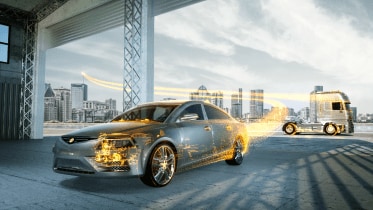The last two years have no doubt highlighted that disruption is the name of the game as far as Auto Inc is considered. The automotive industry, which has for long practiced the partnership ecosystem is now more open to the idea of powering growth via partnerships, joint ventures and acquisitions.
In fact, a quick recap of 2022, sees that many new synergies took place around the megatrend of electrification. Lets look at the major events that happened starting from January 2022.
It was early in the year on January 10, that Mahindra & Mahindra got some clarity with respect to the future of its debt-ridden South Korean subsidiary, SsangYong Motor. A consortium led by Edison Motors agreed to acquire the Korean carmaker for around 305 billion won (Rs 2,102 crore), which unfortunately didn’t go through. But finally, in June, a consortium led by KG Group finally acquired the debt-ridden company, ending the rollercoaster ride for Mahindra Group.
In the same month, TVS Motor Co, further amplified its vision to accelerate plans for electric vehicles, and acquired 75 percent stake in Swiss E-Mobility Group for $100 million (Rs 824 crore), with plans to acquire the remaining stake next year. This is part of the company’s bet on accelerated adoption of premium electric bicycles in the European markets.
In February, Tata Motors’ owned British luxury brand, Jaguar Land Rover announced a collaboration with Nvidia, to jointly develop and deliver next-generation automated driving systems plus AI-enabled services and experiences for its customers.
Continuing the focus on electrification the same month saw, Hero MotoCorp, the country’s largest two-wheeler maker, joined hands with Bharat Petroleum Corporation to set-up charging infrastructure across the country. This marked the first-of-its-kind collaboration between an OEM and a public oil sector company.
March brought in action on the supplier ecosystem side. Tata Elxsi, a leading design, and technology company joined hands with Renesas Electronics Corporation and opened a design centre in Bengaluru. The facility focusses on developing targeted solutions for electric vehicles, especially the light EV segment.
Another Tata Group company, Tata Power Delhi Distribution inked a partnership with Battery Smart, a leading provider of battery-swapping network for electric vehicles to set up swapping stations across the national capital region for two- and three-wheelers in the same month.
April saw Bengaluru-based mobility company Ola Electric’s announced its ambitious investment in Israel-headquartered battery technology company StoreDot. In an undisclosed investment, Ola Electric picked up a stake in the company, which also gives it access to being the sole supplier of the 15-minute quick charging capable batteries (once commercialised) in India.
In May, the country’s largest carmaker Maruti Suzuki India, acquired 12 percent stake in Sociograph Solutions for Rs 2 crore. The carmaker’s intent is to use the visual Artificial Intelligence (AI) platform of SSPL called Dave.AI, to enhance the digital sales experience.
While it was in September 2021, that Ford India called it a day, it was a long wait for the company to find a prospective buyer for its plants in the country. The Sanand plant in Gujarat, was linked to being acquired by companies like MG Motor India, Hyundai Motor India, and Tata Motors. It was in May 2022, that Tata Passenger Electric Mobility finally inked an MoU with the Gujarat government for the potential acquisition of Ford India’s Sanand plant for around Rs 725 crore.
Other noteworthy mention includes RattanIndia Enterprises completing the acquisition of Revolt Motors from its earlier stake of 33.84 percent in October.
With 2023, looking to be a promising new year, new alliances, partnerships and inorganic growth opportunities are set to continue fuelling growth for the auto industry.
